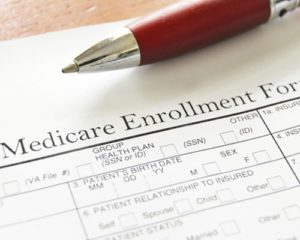Typically, young adults struggle with the highest rates of substance abuse or addiction. Substance abuse typically begins to wane around age 26 and continues to decline as individuals age. However, many older adults still struggle with addiction, including addiction to prescription drugs, which they are more likely to receive for a variety of health conditions like
The Center for Behavioral Health Statistics and Quality (CBHSQ) Short Report found that, in 2014, there were over 1 million people, ages 65 and older, with a substance use disorder; 978,000 older adults with an alcohol use disorder (AUD), formerly called alcoholism; and 161,000 older adults with an addiction to illicit drugs. As the baby boomer generation ages into retirement, these adults bring their unique patterns of substance abuse into their older years, which is estimated to increase rates of drug or alcohol abuse from 2.2 percent to 3.1 percent between 2001 and 2020.
With more older adults struggling with drugs and alcohol, it is important to know which resources are available to support treatment. Medically supervised detox and behavioral counseling in a rehabilitation program make up the foundation of evidence-based addiction treatment, but what is the best way to afford detox and rehabilitation?
Medicare was designed to help older adults manage their medical care, which can increase with age. However, it did not originally include treatment approaches for mental or behavioral health, including substance abuse. Today, combining different parts of Medicare can help you manage appropriate addiction treatment.
Medicare Parts: How These Cover Addiction Treatment Options
Medicare Interactive, an organization that helps people understand Medicare insurance, states that alcoholism and drug addiction treatment will be covered by this government program under some conditions.
- A healthcare provider must deem it medically necessary.
- Services must be provided by a Medicare-approved facility or program.
- The healthcare provider must set up a care plan.
According to Medicare.gov, substance-related disorders will be covered through the different approaches to mental health treatment of specific Medicare parts. Medicare parts cover various services that can be coordinated to offer complete addiction treatment.
According to Medicare.gov, substance-related disorders will be covered through the different approaches to mental health treatment of specific Medicare parts. Medicare parts cover various services that can be coordinated to offer complete addiction treatment.
Part A: This covers much of the cost of hospitalization, including if you are hospitalized due to an overdose or because you need supervision during the detox process. Psychiatric hospital stays are also covered for a total of 190 days. The first 60 days of hospitalization are covered with no cost to coinsurance. Days 61 to 90 are about $335 in coinsurance per day. Day 91 and over are $670 coinsurance per day. There is a 20 percent reduction in cost for associated counseling or mental health services received during your hospitalization.
 Part B: Alcohol and drug outpatient rehabilitation are considered part of mental health coverage because it is based on counseling and therapy practices. Part B covers outpatient mental and behavioral health treatment with a 20 percent coinsurance if you meet your deductible.
Part B: Alcohol and drug outpatient rehabilitation are considered part of mental health coverage because it is based on counseling and therapy practices. Part B covers outpatient mental and behavioral health treatment with a 20 percent coinsurance if you meet your deductible.
Part B may also provide reference care through Screening, Brief Intervention, and Referral to Treatment (SBIRT), which targets individuals who abuse drugs but who are not chemically dependent by screening for potential addiction problems, providing physician or counselor intervention, and referring the person to treatment programs that can help. Partial hospitalization is also covered under Part B, not Part A because much of partial hospitalization for substance abuse allows the person to live at home while they receive treatment in a hospital setting.
Other specific screenings and treatments covered by Part B include:
- One depression screening annually
- Individual and group counseling
- Family counseling is associated with a specific treatment plan
- Ongoing evaluations to make sure the treatment plan is working
- Psychiatric evaluation
- Medication management
- Injections or other drugs that require clinical help to administer
Diagnostic tests
Part D: This part covers prescription medications, which may include drugs like buprenorphine to manage withdrawal symptoms. However, Part D does not cover methadone treatment for opioid addiction. This is because the requirements for Part D medications are that they can be dispensed through a pharmacy and methadone must be administered at a specific methadone clinic. If your doctor feels that methadone is necessary to taper you off opioid addiction, other methods of financing this approach if needed do not require Medicare coverage. Buprenorphine-combination drugs like Suboxone have become the preferred detox method for opioid addiction, and it is much more likely that your physician will prescribe this substance, which can be covered by Medicare.
Additional or Optional Coverage Alongside Medicare
For many people, Medicare is one insurance plan of two or more. This is the primary form of insurance for many older adults, but many pay for a second insurance program to have better treatment coverage and more treatment options. Private insurance, due to the passage of the Affordable Care Act (ACA), must cover behavioral health, mental health, and substance abuse treatment services.
There are several Medicare Advantage Plans, which are often called Part C or MA Plans. These are plans that are offered to Medicare-eligible individuals and approved by Medicare but created by private insurance companies. Because these are private forms of insurance working with Medicare, the Medicare program pays a fixed amount for some monthly coverage, but other charges can vary based on the private insurance provider’s approach to covering services.
Due to changes in federal programs through the ACA and Medicare, an increasing number of seniors can get evidence-based addiction treatment to prevent substance abuse, overcome existing addictions, and avoid relapse.

